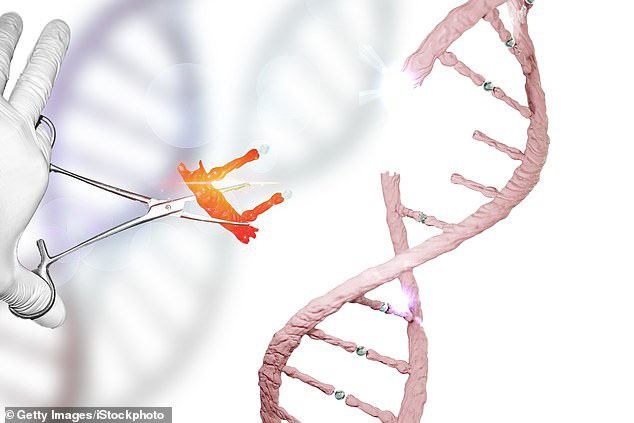Scientists create programmable circuits in HUMAN CELLS, in gene-editing breakthrough they claim could lead to powerful ‘biocomputers’
Researchers say they’ve successfully created a more powerful computer-like human cell that could eventually be used to help monitor one’s health or even fight against cancer and other illnesses, according to Daily Mail.
Using the gene-editing tool CRISPR-Cas9, researchers were able to model a human cell after a computer and make what they are referring to as a ‘program scalable circuits.’
‘This cell computer may sound like a very revolutionary idea, but that’s not the case,” said Martin Fussenegger, Professor of Biotechnology and Bioengineering at the Department of Biosystems Science and Engineering at ETH Zurich in Basel.
‘The human body itself is a large computer. Its metabolism has drawn on the computing power of trillions of cells since time immemorial.’
The cell works like a computer to change the expression of gene characteristics, leveraging a special variant of the Cas9 protein to read RNA sequences and then flipping gene expressions on and off to produce certain proteins.
Though the ‘technology’ in this case is biological, it closely mirrors how CPU’s function in that the cell processor can be told to carry out specific actions depending on the desired outcome.
By wielding control over the actions of the ‘cell computer’ their creation could help to not only identify events happening inside one’s body by reacting to certain chemical processes or metabolic products, but also help respond to them.
For instance, researchers say, if a certain biomarker remains in the body for a longer period of time, the phenomenon could indicate that cancer is metastasizing.
The ‘biocomputer’ could then help target the growth and use its capabilities to remove it.
What separates the recent discovery from other biocomputers, is its processing power, say researchers.
Scientists imagine not only individual biocomputers, but entire networks of cells that could create, in-effect, a type of smart tissue that would expand processing power.
‘Imagine a microtissue with billions of cells, each equipped with its own dual-core processor. Such ‘computational organs’ could theoretically attain computing power that far outstrips that of a digital supercomputer – and using just a fraction of the energy,’ Fussenegger said in a statement.
In the case of Fuessenegger’s vision, the power supply to his cellular computer would be something startlingly simple.
‘In contrast to a technical supercomputer, this large computer needs just a slice of bread for energy,’ Fussenegger said.
The discovery marks a major breakthrough for scientists looking to create computer-like cells that can help improve the human body.
Previous efforts centered on the usage of protein gene switches which scientists say were less equipped to process information, capable of processing only one command at a time.
The next step for advancing their biotechnology, say researchers, will be to add a multi core processor capable of handling even more complex commands and information.
N.H.Kh

